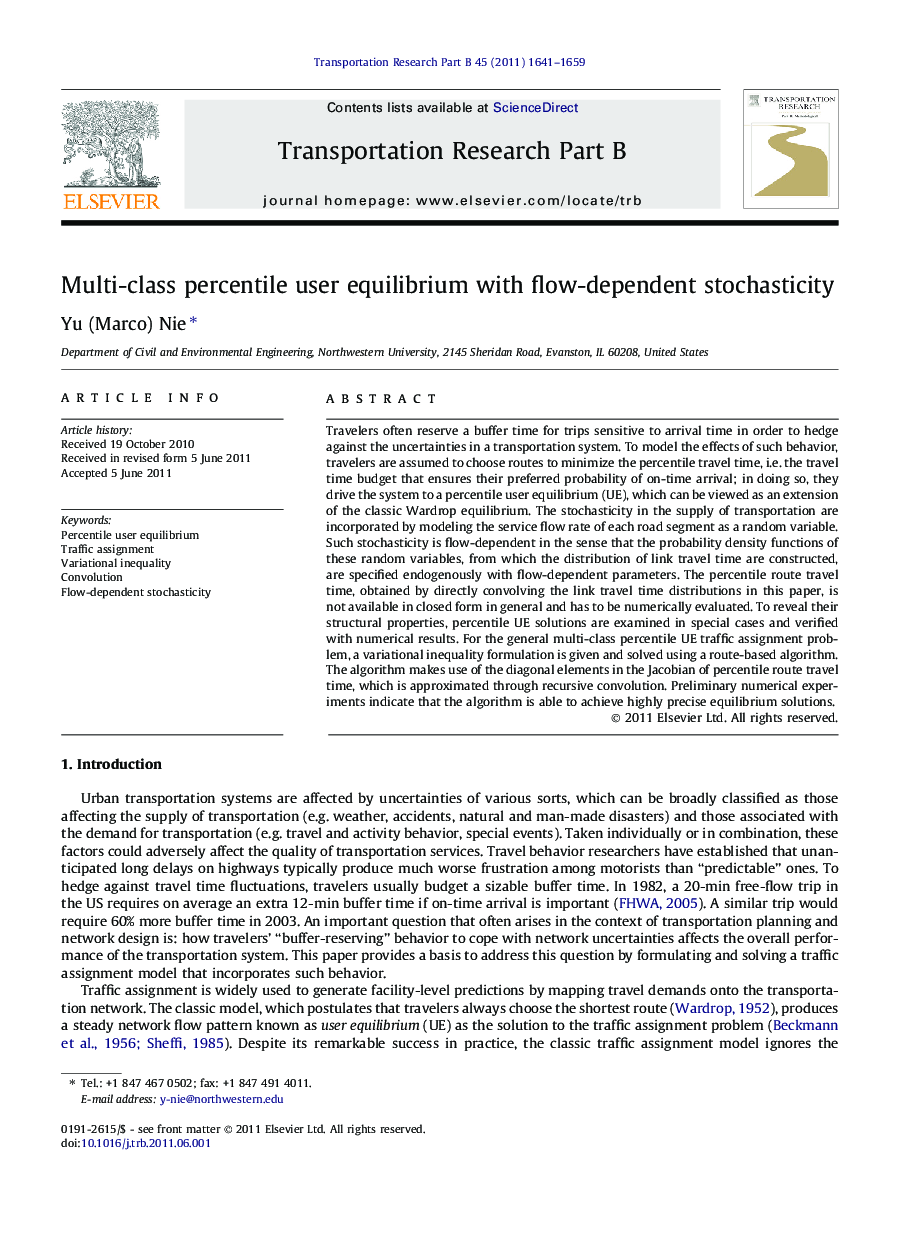| Article ID | Journal | Published Year | Pages | File Type |
|---|---|---|---|---|
| 1132311 | Transportation Research Part B: Methodological | 2011 | 19 Pages |
Travelers often reserve a buffer time for trips sensitive to arrival time in order to hedge against the uncertainties in a transportation system. To model the effects of such behavior, travelers are assumed to choose routes to minimize the percentile travel time, i.e. the travel time budget that ensures their preferred probability of on-time arrival; in doing so, they drive the system to a percentile user equilibrium (UE), which can be viewed as an extension of the classic Wardrop equilibrium. The stochasticity in the supply of transportation are incorporated by modeling the service flow rate of each road segment as a random variable. Such stochasticity is flow-dependent in the sense that the probability density functions of these random variables, from which the distribution of link travel time are constructed, are specified endogenously with flow-dependent parameters. The percentile route travel time, obtained by directly convolving the link travel time distributions in this paper, is not available in closed form in general and has to be numerically evaluated. To reveal their structural properties, percentile UE solutions are examined in special cases and verified with numerical results. For the general multi-class percentile UE traffic assignment problem, a variational inequality formulation is given and solved using a route-based algorithm. The algorithm makes use of the diagonal elements in the Jacobian of percentile route travel time, which is approximated through recursive convolution. Preliminary numerical experiments indicate that the algorithm is able to achieve highly precise equilibrium solutions.
► Our model predicts the long-term impacts of the uncertainties in the supply of transportation on travellers route choice. ► Users are assumed to choose routes to minimize their time budget to ensure a desired on-time arrival probability. ► Uncertainties are described with random variables whose distribution functions are flow-dependent. ► Percentile route travel time are defined using numerical convolution of random link travel times. ► An efficient route-based algorithm that utilizes the approximated Jacobian of percentile travel time are proposed and tested.
